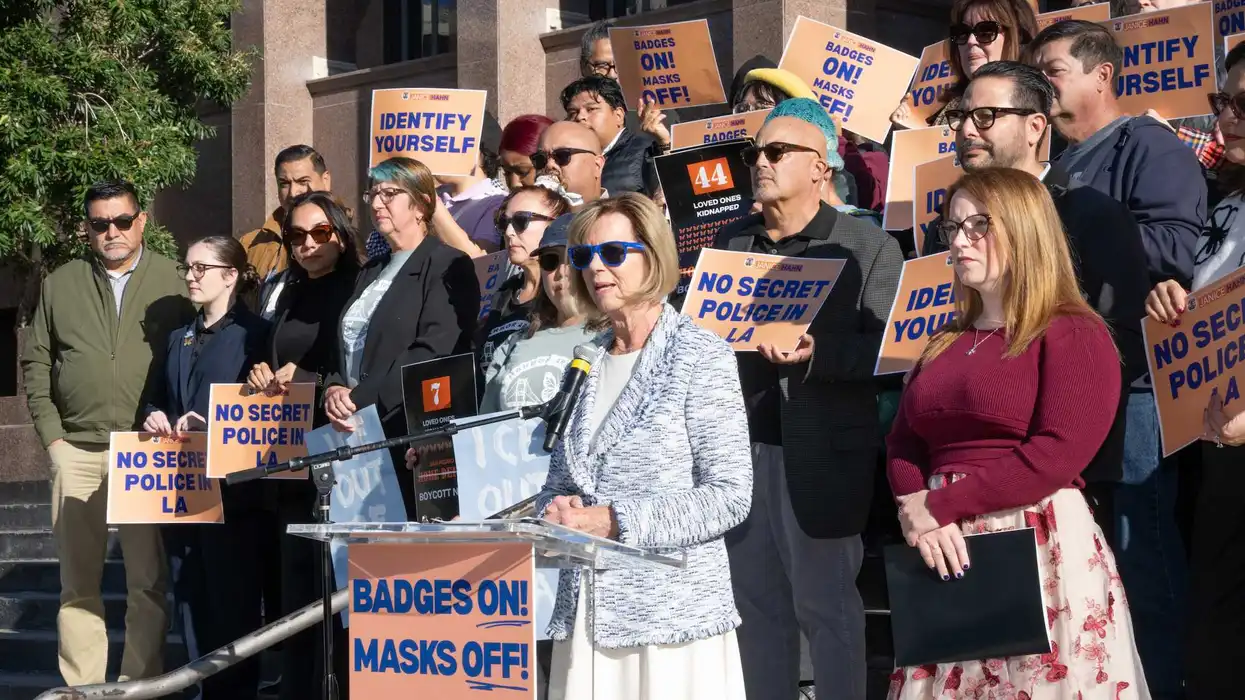
© 2025 Blaze Media LLC. All rights reserved.
"they should be free to use the contraceptive pill"
 Should nuns be taking contraceptives? On the surface, this seems like a bizarre question to be asking, especially considering the Catholic Church's stance on birth control and the fact that Catholic clergy take a celibacy pledge.
Should nuns be taking contraceptives? On the surface, this seems like a bizarre question to be asking, especially considering the Catholic Church's stance on birth control and the fact that Catholic clergy take a celibacy pledge.
But scientists are now claiming that "the pill" would help protect nuns from breast, ovarian and uterine cancer -- diseases they claim are more likely among women who never bear children.
Writing in the Lancet, a well-known medical journal, Dr. Kara Britt of Monash University and Professor Roger Short of the University of Melbourne argue that nuns should be allowed to take the pill. They write:
Catholic nuns are committed to leading a celibate, spiritual life in a monastery or convent. In 1713, Italian physician Bernadino Ramazzini noted that nuns had an extremely high incidence of that “accursed pest”, breast cancer. Today, the world's 94,790 nuns still pay a terrible price for their chastity because they have a greatly increased risk of breast, ovarian, and uterine cancers: the hazards of their nulliparity.

The Catholic church condemns all forms of contraception, as outlined by Pope Paul VI in Humanae Vitae in 1968. Although Humanae Vitae never mentions nuns, they should be free to use the contraceptive pill to protect against the hazards of nulliparity since the document states that 'the church in no way regards as unlawful therapeutic means considered necessary to cure organic diseases, even though they also have a contraceptive effect.' If the Catholic church could make the contraceptive pill freely available to all its nuns, it would reduce the risk of those accursed pests, cancer of the ovary and uterus, and give nuns' plight the recognition it deserves.
The obvious question is: Why are nuns more susceptible to these cancers? Women who have children have a lower number of ovulatory cycles in their lifetime, thus their cancer risk is not as great as those who have never had children or have breastfed.
According to Short, one theory regarding why the uterine cancer risk may be higher is because of the incessant growing and rebuilding of the uterus lining. "It is a major stress on the uterus to repair itself as you slough off the endometrium," Short explains. NewScientist.com continues:
Regular ovulation, meanwhile, is thought to increase a woman's risk of ovarian cancer. Short points out that domestic chickens are the only animals known to ovulate once a day, and if they live long enough they have a very high risk of ovarian cancer.

During the first half of the 20th century, 32,000 Catholic nuns were studied by scientists and were found to have higher death rates from breast, uterine and ovarian cancer than other women their age did. According to the Guardian, in 1970, scientists officially recognized that having no children raised breast cancer risk in nuns. The Guardian has more:
The oral contraceptive pill has been shown to have a protective effect. It reduces the overall mortality rates of women who have ever taken it by 12% compared with non-users. The risk of developing ovarian and endometrial cancers falls by 50%-60% in pill users compared with never-users, protection that persists for 20 years. There is an increased risk of blood clots, however.
How the church will respond to this research will be intriguing, especially considering the Pope's focus upon scientific evidence in making decisions. This has particularly been true when it comes to climate change. Whether the church will make an exception here is yet to be seen.
(H/T: The Guardian)
Want to leave a tip?
We answer to you. Help keep our content free of advertisers and big tech censorship by leaving a tip today.
Want to join the conversation?
Already a subscriber?
Billy Hallowell is a digital TV host and interviewer for Faithwire and CBN News and the co-host of CBN’s "Quick Start Podcast."
Billy Hallowell
Billy Hallowell is a digital TV host and interviewer for Faithwire and CBN News and the co-host of CBN’s "Quick Start Podcast."
more stories
Sign up for the Blaze newsletter
By signing up, you agree to our Privacy Policy and Terms of Use, and agree to receive content that may sometimes include advertisements. You may opt out at any time.
Related Content
© 2025 Blaze Media LLC. All rights reserved.
Get the stories that matter most delivered directly to your inbox.
By signing up, you agree to our Privacy Policy and Terms of Use, and agree to receive content that may sometimes include advertisements. You may opt out at any time.






